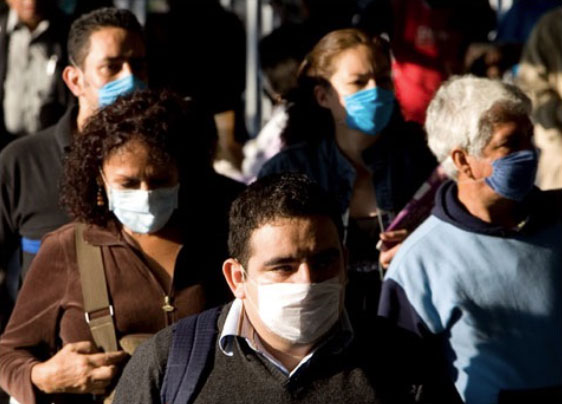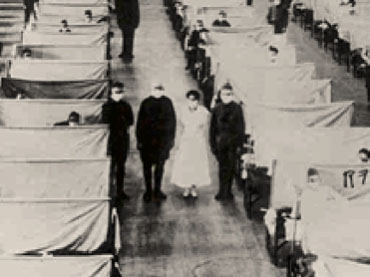Pandemic Influenza
A pandemic is a global disease outbreak. Pandemic flu (influenza) is a global outbreak of flu that involves a new flu virus and causes serious human illness. The flu strain that causes the pandemic will spread quickly and easily from person to person because people are unlikely to have immunity against it.
Seasonal Flu vs. Pandemic Flu
Seasonal Flu
- Occurs every year during the winter months.
- Affects about 10% of the population.
- For most people, it is an unpleasant, but not a life-threatening infection.
- Results in an average of 36,000 deaths each year.
- Young children, the elderly and those with chronic illnesses are at higher risk.
- An annual vaccine is available.
Pandemic Flu
- Can occur at any time of the year.
- May cause illness in 30 to 50% of the world’s population.
- Will likely be more severe than seasonal flu.
- People of every age may be at risk.
- A vaccine probably won’t be available when the pandemic starts.
- Has occurred 4 times in the last century, including the 2009/2010 H1N1 Pandemic.
- Experts believe another is likely to occur.
Vaccine to Prevent Pandemic Flu

Flu vaccines must be made specifically for the type of flu virus circulating that year. Until the specific pandemic flu virus is identified, it is not possible to make the vaccine. A flu vaccine takes four to six months to produce, so a vaccine probably won’t be available at the start of a pandemic.
Drugs to Treat Pandemic Flu
- Antiviral drugs may be available to lessen the severity and duration of symptoms of pandemic flu.
- The United States is currently stockpiling antivirals.
- In the event of a pandemic, antivirals will be prescribed in the most effective way based on how the disease develops.
Issues of Concern
- Most people will have no immunity to a pandemic virus, so illness and death rates are expected to be higher than during seasonal outbreaks of influenza.
- Scientists estimate that a large number or percentage of the world’s population will require some form of medical care.
- Countries might, through measures such as border closures and travel restrictions, delay arrival of the virus, but cannot stop it.
- The three pandemics of the 1900’s encircled the globe in six to nine months. Now, modern transportation may help the virus spread faster globally.
Current Planning Efforts
- Many governments have begun stockpiling antiviral medicines.
- Surveillance systems to detect flu are being enhanced.
- RCPH has plans to detect, monitor and treat people who may become ill during a pandemic flu event.
- RCPH was an active partner during the H1N1 Pandemic, ensuring that thousands of residents were vaccinated.
Healthy Hygiene
Flu viruses spread through the air when people cough or sneeze. Basic healthy hygiene actions may reduce the risk of getting or spreading flu are:
- Wash your hands frequently with soap and warm water or use hand sanitizer.
- Cover your mouth and nose when you cough or sneeze.
- Avoid large crowds whenever possible.
- DO NOT go to work when you are ill.
- DO NOT send an ill child to school or day-care.
- Avoid close contact with those who are sick.
- Avoid touching your eyes, nose and mouth at all times.
- Eat a healthy diet and get regular exercise.
For More Information:
- WI Division of Public Health: pandemic.wisconsin.gov
- CDC: pandemicflu.gov


